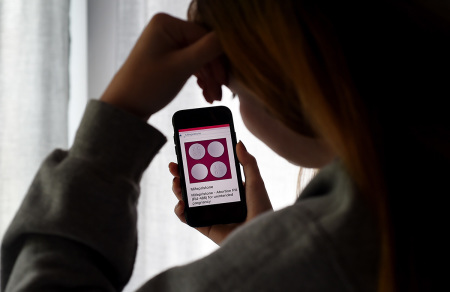Florida vows pharmacies dispensing the abortion pill will face referral for 'criminal activity'

A Florida health agency warned pharmacies they may not dispense the abortion pill after the U.S. Food and Drug Administration said it would allow women to obtain chemical abortion drugs over the counter.
The Florida Agency for Health Care Administration released a statement last week stating that Florida law continues to prevent women from obtaining mifepristone at pharmacies. The agency cited two Florida statutes that it says prohibits the abortion pill at pharmacies.
One statute declares that “[n]o termination of pregnancy shall be performed at any time except by a [licensed] physician." The other proclaims, “[i]t is unlawful for any person to perform or assist in performing an abortion on a person, except in an emergency care situation, other than in a validly licensed hospital or abortion clinic or in a physician’s office.”
The Florida agency stated that “willfully violating these provisions could result in criminal penalties” and vowed to refer “any evidence of criminal activity” to local law enforcement.
The statement follows the FDA’s announcement that it modified the Risk Evaluation and Mitigation Strategies (REMS) for mifepristone to enable the pill to “be dispensed by certain pharmacies or by or under the certification of a certified prescriber.” The latest REMS modifications build off of the FDA’s earlier changes to the long-standing safety protocols that lifted the in-person dispensing requirement for the drug.
The prevalence of chemical abortions has grown over the years as it now accounts for more than half of abortions in the United States.
The chemical abortion drug regimen consists of two drugs. Mifepristone is a synthetic steroid endocrine disruptor that starves the baby to death.
According to a lawsuit filed against the FDA in November by the American Association of Pro-Life Obstetricians and Gynecologists and other pro-life organizations, mifepristone alone works less than 25% of the time to complete the abortion. The FDA mandates using misoprostol to induce cramping and contractions to expel the baby from the womb.
Before the modification of the REMS in late 2021, women had to see a doctor before they could obtain the chemical abortion pill. Although pro-life advocates contend safety concerns should require the in-person dispensing requirement, the FDA and pro-abortion activists initially cited the coronavirus pandemic as why the safety provision must be abandoned.
The abolition of the in-person dispensing requirement has enabled women to obtain the abortion pill by mail. Following the latest round of REMS modifications, pro-life groups have issued warnings about the risks posed by chemical abortions.
Last week, the American College of Pediatricians released a 24-page report stating that “Induced abortions, whether chemical or surgical, can have serious complications that include hemorrhage, infection, and incomplete abortion.”
“These complications may be increased when women self-administer chemical abortion drugs without [the] benefit of an in-person evaluation by a health care provider," the medical professionals warned.
Two major pharmacy chains have already embraced the idea of dispensing mifepristone at their stores across the U.S.
Walgreens released a statement to Reuters in early January indicating that the company is "working through the registration, necessary training of our pharmacists, as well as evaluating our pharmacy network in terms of where we normally dispense products that have extra FDA requirements and will dispense those consistent with state and federal laws.”
Meanwhile, CVS has announced its intention “to seek certification to dispense mifepristone where legally permissible.” Both pharmacy chains’ statements suggest that they will not dispense the abortion pill in Florida, as doing so would run afoul of the state laws they vowed to abide by.
The relaxed requirements for dispensing the abortion pill and Florida’s continued prohibition on chemical abortions come more than six months after the U.S. Supreme Court determined in Dobbs v. Jackson Women’s Health Organization that the U.S. Constitution does not contain a right to abortion.
While the FDA insisted that the changes to the REMS had nothing to do with the Dobbs decision, the move is consistent with the Biden administration's vowed to expand abortion access.
At the same time, Florida’s ban on dispensing the abortion pill at pharmacies reflects the state’s support for pro-life laws and the policy stance of Florida Gov. Ron DeSantis, who polls suggest could be a heavy contender for the 2024 Republican presidential nomination should he declare his candidacy. Currently, Florida bans abortions after 15 weeks gestation.
Ryan Foley is a reporter for The Christian Post. He can be reached at: [email protected]





















